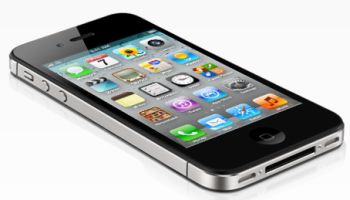VMware has said that its new Horizon Mobile technology, which can create a virtual work phone on employee’s personal smartphone, will operate on both Android and Apple iOS handsets.
When VMware unveiled Horizon Mobile at VMworld 2011, it only supported Android, which struck some industry observers as a big shortcoming. But Hoofar Razavi, director of product management for mobile solutions at VMware, said it had been on VMware’s road map all along to support iOS.
BYOD Headache
Horizon Mobile is VMware’s response to the bring-your-own-device (BYOD) trend in the workplace, in which employees want to use their own smartphones or tablet computers at work. But while BYOD is popular with workers, it presents a dilemma to the IT staff that has to manage network access and secure corporate data on multiple device brands and platforms.
 With Horizon, the IT staff emails an employee a link to a site, which they access from the device they want to use and, from that link, set a pass code that verifies that the employee and the device are approved. The company then delivers the virtual instance to the device over the air.
With Horizon, the IT staff emails an employee a link to a site, which they access from the device they want to use and, from that link, set a pass code that verifies that the employee and the device are approved. The company then delivers the virtual instance to the device over the air.
The IT professional operates from a dashboard, called the Horizon Broker that sets up the virtual “workspace,” as Razavi put it, including all the business applications the worker needs to do their job. The number of apps included depends on their job and the access for which they’ve been approved for various corporate data.
“The point of all of this is to have asset control and data control under a unified set of policies,” he said.
The VMware system supports BYOD while also protecting corporate data, added Charles King, principal analyst at Pund-IT, a research firm.
“It creates a secure bubble that a worker can use, but if the device happens to be lost or stolen, it provides his employer with some peace of mind from the state secrets being lost out in the ether,” King said.
Virtual Phone
Razavi demonstrated how Horizon Mobile works on a Samsung Galaxy S III smartphone. On the personal phone screen is an icon that identifies the virtual work phone. Touch the icon and the device switches to the virtual device where users need to enter a pass code.
There’s a similar icon on the virtual phone screen to switch back to the personal phone. The user can switch back and forth easily between the two unless the phone sits idle and slips into sleep mode. Then the pass code has to be entered again.
VMware’s announcement 28 August at VMworld of support for iOS on Horizon Mobile is important, because if it only supported Android, it would have overlooked one of the two most widely used OSes, said Chris Wolf, a research vice president at Gartner.
“Any strategy that does not include iOS support really is not a bring-your-own-device strategy,” said Wolf.
Another company present at VMworld is MokaFive, which has a similar feature, but offers it as an application rather than a virtual instance. The point is to secure the corporate data on the employee’s device, not the device itself, said Punima Padmanabhan, chief operating officer of MokaFive.
“We have containerised what matters [so that it] is fully encrypted, and now it can be dropped on any device,” said Padmanabhan.
She argues that MokaFive’s application is less intrusive on the device than VMware’s virtual instance and could be less expensive.
Coming Soon
Pricing hasn’t been revealed for Horizon Mobile, which Razavi said would be available “soon,” first for Android devices on smartphones and tablets from Samsung and LG, and then later for Apple iOS on iPhones and iPads.
Razavi said VMware went the virtualisation route with Android because it lacks the security capability of iOS devices. Because iOS is inherently more secure, the Horizon Mobile solution for Apples will be offered as an application only, like MokaFive.
Horizon Mobile is one component of a VMware Horizon suite for which upgrades were unveiled 28 August at VMworld. Other components in the suite include Horizon Application Manager for identity and access management of corporate apps, and Horizon Data for secure file sharing in the cloud. Razavi described the latter as “Dropbox for enterprises.”
The working title for Horizon Data had been “Project Octopus” when it was in development. But now that it’s officially been released, VMware renamed it Horizon Data for branding consistency.
What do you know about smartphones? Find out with our quiz!





